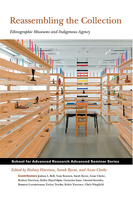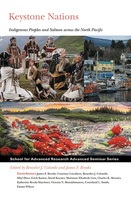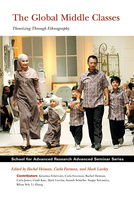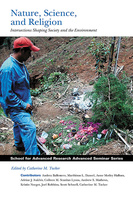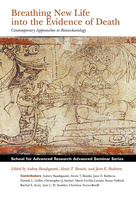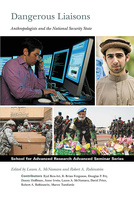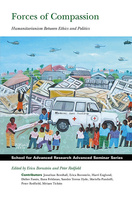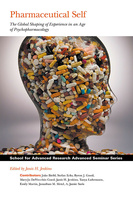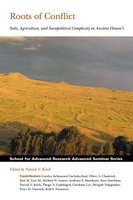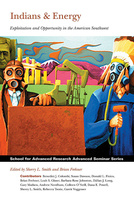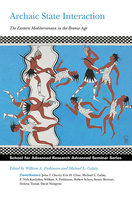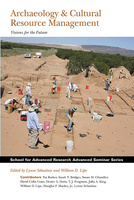Reassembling the Collection
Ethnographic Museums and Indigenous Agency
Reassembling the Collection presents innovative approaches to the study of historical and contemporary engagements between museums and the various individuals and communities who were (and are) involved in their production and consumption.
Big Histories, Human Lives
Tackling Problems of Scale in Archaeology
The contributors consider something archaeologists seldom think about: the intersection of micro-scale human experience with large-scale and long-term histories.
Keystone Nations
Indigenous Peoples and Salmon across the North Pacific
The histories and futures of Indigenous peoples and salmon are inextricably bound across the vast ocean expanse and rugged coastlines of the North Pacific. Keystone Nations addresses this enmeshment and the marriage of the biological and social sciences that have led to the research discussed in this book.
The Global Middle Classes
Theorizing through Ethnography
Surging middle-class aspirations and anxieties throughout the world have recently compelled anthropologists to pay serious attention to middle classes and middle-class spaces, sentiments, lifestyles, labors, and civic engagements.
Nature, Science, and Religion
Intersections Shaping Society and the Environment
This book is about the complicated and provocative ways nature, science, and religion intersect in real settings where people attempt to live in harmony with the physical environment. The contributors explore how scientific knowledge and spiritual beliefs are engaged to shape natural resource management, environmental activism, and political processes.
The Shape of Script
How and Why Writing Systems Change
This book builds on earlier projects about the origins and extinctions of script traditions throughout the world in an effort to address the fundamental questions of how and why writing systems change. The contributors--who study ancient scripts from Arabic to Roman, from Bronze Age China to Middle Kingdom Egypt--utilize an approach that views writing less as a technology than as a mode of communication, one that is socially learned and culturally transmitted.
Breathing New Life into the Evidence of Death
Contemporary Approaches to Bioarchaeology
Taking cues from current theoretical perspectives and capitalizing on the strengths of new and sophisticated methods of analysis, Breathing New Life into the Evidence of Death showcases the vibrancy of bioarchaeological research and its potential for bringing "new life" to the field of mortuary archaeology and the study of human remains.
Dangerous Liaisons
Anthropologists and the National Security State
Dangerous Liaisons is a book about intersections. It is a product of two year's worth of discussion among a group of ethnographers from four different countries studying war, violence, the military, and the state.
Enduring Conquests
Rethinking the Archaeology of Resistance to Spanish Colonialism in the Americas
Enduring Conquests presents new interpretations of Native American experiences under Spanish colonialism and challenges the reader to reexamine long-standing assumptions about the Spanish conquests of the Americas.
Forces of Compassion
Humanitarianism between Ethics and Politics
Suffering and charity have a long history. Both human sorrows and attempted remedies were familiar features of life in earlier eras and religious traditions, however, during the final decades of the twentieth century, natural disasters and civilian casualties of war transformed into "humanitarian crises." In these recurring dramas presented by international media, an extensive network of interstate entities and nongovernmental organizations (NGOs) supplies assistance to victims.
Pharmaceutical Self
The Global Shaping of Experience in an Age of Psychopharmacology
This book addresses a critical contemporary issue--the worldwide proliferation of pharmaceutical use. The contributors explore questions such as: How are culturally constituted selves transformed by regular ingestion of pharmaceutical drugs? Does "being human" increasingly come to mean not only oriented to drugs but also created and regulated by them? From the standpoint of cultural phenomenology, does this reshape human "being"?
Roots of Conflict
Soils, Agriculture, and Sociopolitical Complexity in Ancient Hawai'i
Roots of Conflict presents the efforts of a team of social and natural scientists to understand the complex, systemic linkages between land, climate, crops, human populations, and their cultural structures.
Indians and Energy
Exploitation and Opportunity in the American Southwest
The authors consider the complex relationship between development and Indian communities in the Southwest in order to reveal how an understanding of patterns in the past can guide policies and decisions in the future.
Archaic State Interaction
The Eastern Mediterranean in the Bronze Age
By using a specific case study, the contributors to this book aim to help establish a common theoretical ground for investigating how humans and the societies they built interacted over time.
Archaeology and Cultural Resource Management
Visions for the Future
By most estimates, as much as 90 percent of the archaeology done in the United States today is carried out in the field of cultural resource management. The contributors hope that this book will serve as an impetus in American archaeology for dialogue and debate on how to make CRM projects and programs yield both better archaeology and better public policy.

